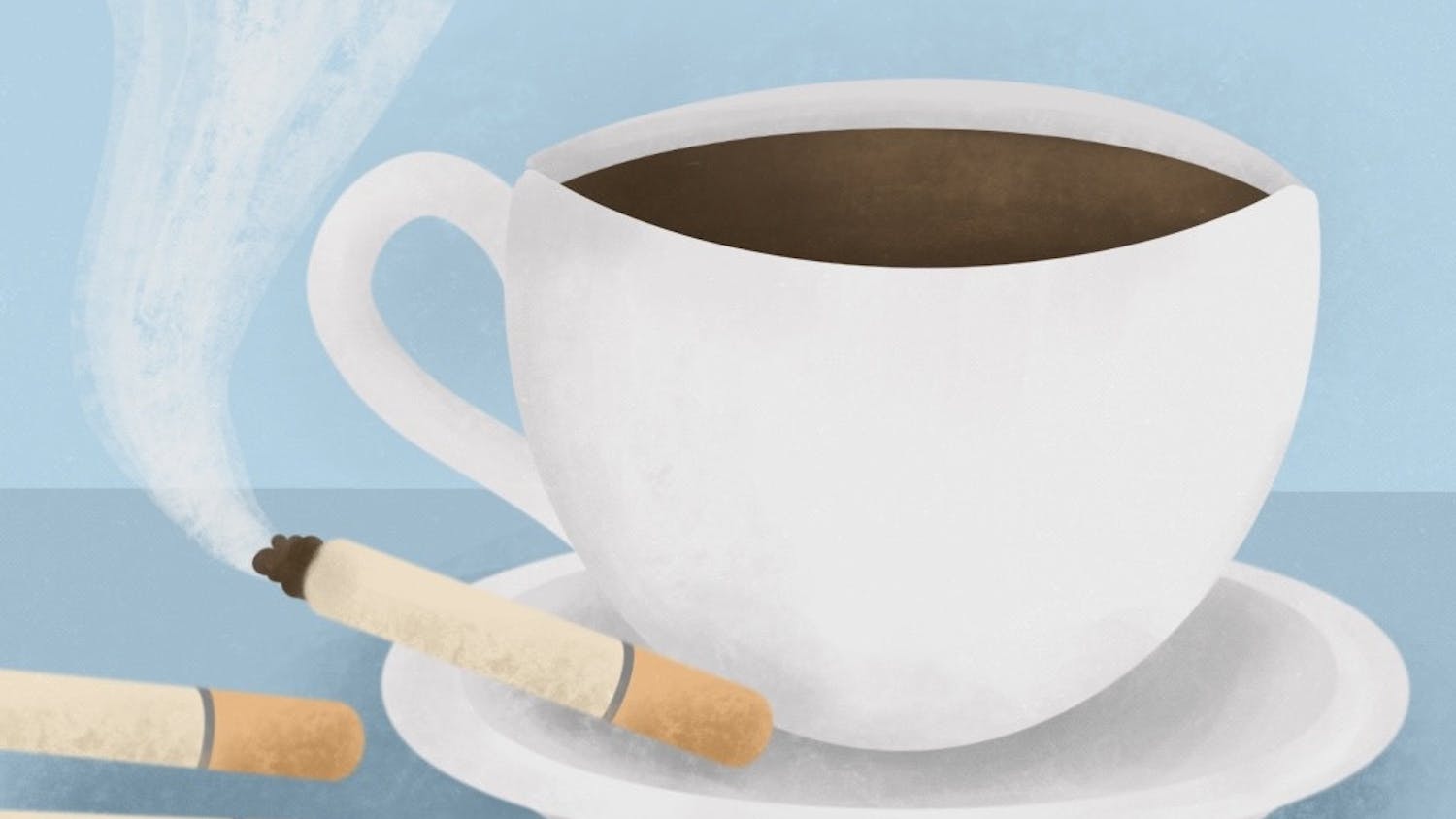An open letter to all citizens of coffee-land who drink decaf: I do not understand you. I recognize the merits of coffee as a drink — its aroma, its flavors, its warmth as it hits your tongue. The small stains it leaves around the rim of your mug. The brown crop circle it leaves on your desk is endearing — its repose as a hazel-colored halo on what is likely meaningless desk paperwork. But for me, its main benefit is its ability to focus me on the task at hand. Coffee just doesn’t taste good enough to drink without the drug: caffeine.
Many American white-collar jobs have a coffee pot. This is what would be known on the Savanna as a watering hole, without the crocodiles of course. Everyone in the office frequents it because clerical work is dull and coffee is stimulating. It helps us get through the slog of pale green Excel spreadsheets and protect-and-serve blue Word documents that are the lifeblood of office work. We need the extra energy to get through endless keystrokes that take us from one Microsoft product to another. Strong caffeinated coffee is a lifesaver. It elevates your heart rate. It doesn’t make your day more exciting, but it certainly makes it more exhilarating. The budget proposal for this fiscal year would have crumbled the walls of your mental faculties if not for the strong buttress of coffee to hold the wall.
For those of you who drink decaffeinated coffee: I do not judge you. You may have your reasons. Some of you may not be heart-healthy enough for caffeine. Some may not like the jitters the drink will give you if you’ve imbibed it in excess. But if your reasons for drinking decaf are that you just like the way it tastes, I raise a skeptical eyebrow at you.
Firstly, decaf isn’t really decaf. Decaffeinated coffee contains about 7 milligrams of caffeine. Secondly, the health benefits of coffee are nothing compared to a simpler juice with better health benefits. I’ll illustrate it for you, these are all stats coming from healthline.com: One cup of brewed decaf coffee provides 2.4 percent of the recommended daily allowance (RDA) of magnesium, 4.8 percent of potassium and 2.5 percent of niacin, or vitamin B3. That’s about all you’re getting. On the other hand, a cup of pomegranate juice can get you 5.3 percent RDA of magnesium, 11.3 percent RDA of potassium and 15 percent of your RDA for vitamin B. Why drink plain bean water when you can double all those nutrients with, in my opinion, a better tasting drink?
If decaf is your thing, I do not understand you, but I accept you. Drink your bean water. Just don’t come running to me when you’re late on a deadline, and next time, drink a regular cup of joe.
Stephan Chamberlin is a UF political science junior. His column comes out Tuesday and Thursday.





